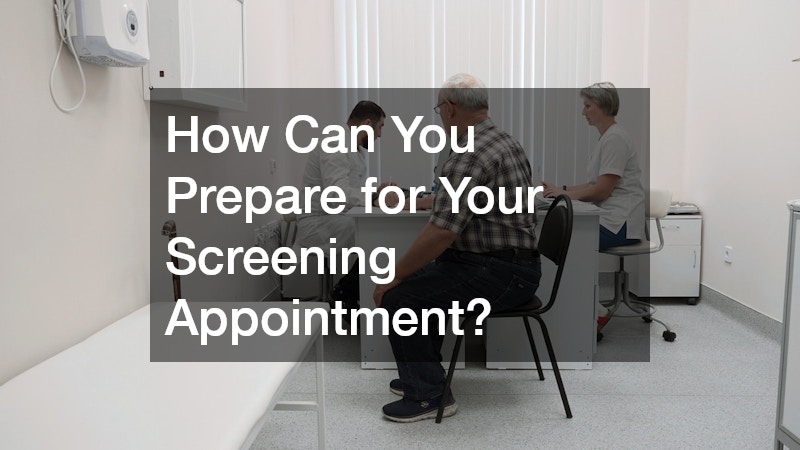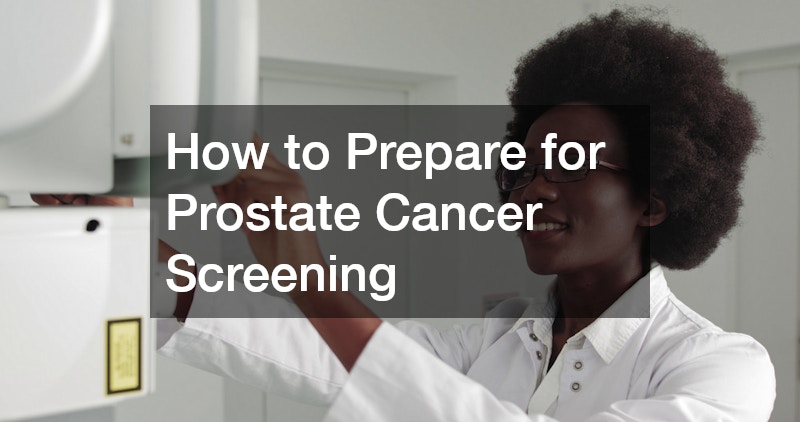
This article provides a comprehensive guide on preparing for prostate cancer screening. It addresses common concerns and questions regarding the procedure’s importance and what to expect. It covers practical steps before the appointment, such as gathering medical records, preparing questions, and understanding potential outcomes. The guide aims to empower individuals to approach screening with confidence and greater peace of mind by offering clear, supportive information.
Why is Prostate Cancer Screening Important?
Prostate cancer screening is a pivotal procedure for early detection, potentially leading to more effective treatment if cancer is found. The screening aims to identify cancer at an early stage, where options for treatment are broader and success rates can be higher.
However, it’s essential to be aware of the potential risks, such as false positives, which may result in unnecessary anxiety and additional testing.
Early detection through screening, such as PSA tests, can significantly lower the risk of prostate cancer progressing to a more serious stage. While regular screenings aren’t always foolproof, they can provide peace of mind and valuable information about one’s health status. It is essential to weigh these benefits against the psychological impacts and the potential need for further invasive testing.
Although some individuals may experience stress related to the screening process, understanding its significance can alleviate some of these concerns. Discussions with healthcare providers can help clarify the necessity and timing of screenings based on individual risk factors. By aligning with a professional opinion, one can better appreciate their health landscape and make informed decisions.
What Should You Expect During the Screening Process?
Prostate cancer screening typically involves a PSA test and a digital rectal exam (DRE), each serving a distinct purpose in early detection. The PSA test is a simple blood test designed to measure the level of prostate-specific antigen in the bloodstream, an elevated level of which can indicate the presence of cancer. On the other hand, the DRE enables physical examination of the prostate gland to detect irregularities.
Understanding what each method entails can demystify the experience and reduce apprehension. The PSA test is quick and is performed through a blood sample, which is later analyzed in a laboratory. The DRE may feel uncomfortable for some, yet it is a crucial, albeit brief, part of the examination process. Knowing these basics can prepare individuals mentally and physically for their appointment.
It’s normal for patients to have questions or concerns about these procedures, and medical professionals are there to provide clarity. Knowing the purpose and methodology behind each selection can help foster a sense of control and engagement in one’s health management. With the right knowledge and preparation, these screenings can become a routine part of a health-conscious lifestyle.
When Should You Begin Prostate Cancer Screening?
The age at which to begin prostate cancer screening varies according to individual risk factors, including family history and genetic predisposition. For many, screenings are advised starting at age 50, but those with a family history of prostate cancer may need to consider earlier testing, often by age 40 or 45. The key is to tailor screening timing and frequency to one’s unique risk profile.
Consulting with healthcare providers can help generate a personalized screening schedule, accommodating specific needs based on medical history and lifestyle factors. Understanding these guidelines aids in balancing vigilance with caution, avoiding over-screening while maximizing protection through early detection. Structured timing can optimize outcomes and enhance individual health trajectories.
Regular discussions with medical experts ensure individuals remain informed about advances in prostate cancer screening methods and recommendations. As recognized experts, they can help individuals navigate changing guidelines and new data that might alter the screening landscape. This partnership fosters proactive health management and encourages empowered decision-making based on current best practices.
How Can You Prepare for Your Screening Appointment?

Preparing for a prostate cancer screening appointment effectively can significantly alleviate stress and streamline the experience. It’s advisable to compile a list of questions or concerns before the appointment, ensuring all aspects of the procedure are fully understood. Bringing necessary documentation, including medical history, can facilitate discussions with the healthcare provider. This preparation enables the physician to tailor recommendations based on your specific risk factors and background.
On the day of the appointment, endeavor to remain relaxed and focused, arriving with ample time to settle before the examination. Simple mindfulness exercises or deep-breathing techniques can be beneficial. It may also be prudent to arrange a companion to accompany you, offering additional support and assistance in discussing desired results. Having someone with you can also help you remember important details shared during the visit.
By anticipating common concerns and addressing them with practical strategies, the overall experience of prostate cancer screening can be significantly improved. Open communication with healthcare providers is key to uncovering further preparatory advice tailored to individual needs. This proactive approach refines the process and promotes lifelong health awareness and advocacy. It also empowers patients to feel more in control and engaged in their healthcare journey.
Adequate preparation for prostate screening can lead to early detection and better outcomes. By understanding the process and addressing any concerns, you can take control of your health and well-being. This knowledge can ease anxiety and encourage timely follow-up if further testing or treatment is needed.



